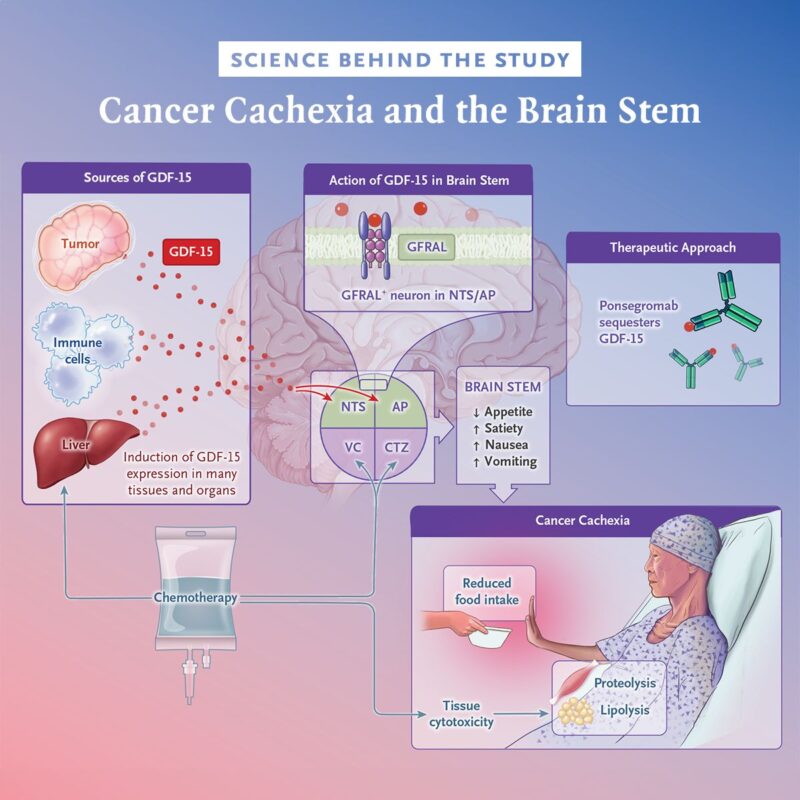NEJM Group shared on LinkedIn:
“Cancer cachexia is a syndrome defined by progressive weight loss in the presence of underlying malignant disease, which may culminate in extreme depletion of muscle and adipose tissue and, ultimately, death. Its prevalence and severity varies across different types of cancer and among persons with the same type of cancer.
Cachexia is triggered by cancer, but tumor-induced immune activation and off-target effects of cancer therapies are also risk factors (shown in figure). Patients with cachexia have reduced psychological, emotional, and social well-being related to their inadequate food intake, altered body image, and reduced physical function. Moreover, the condition incurs increased health care costs and confers a predisposition to cancer treatment–related complications and death. Despite renewed interest in cachexia therapeutics, treatment options are limited.
In a new editorial, Vickie E. Baracos, PhD, describes the science behind a study of ponsegromab to treat cancer cachexia. Ponsegromab suppresses a pathway in neurons located in specific regions of the brain stem.
Learn more in ‘Cancer Cachexia and the Brain Stem’ by Vickie E. Baracos, PhD, from the University of Alberta.”



